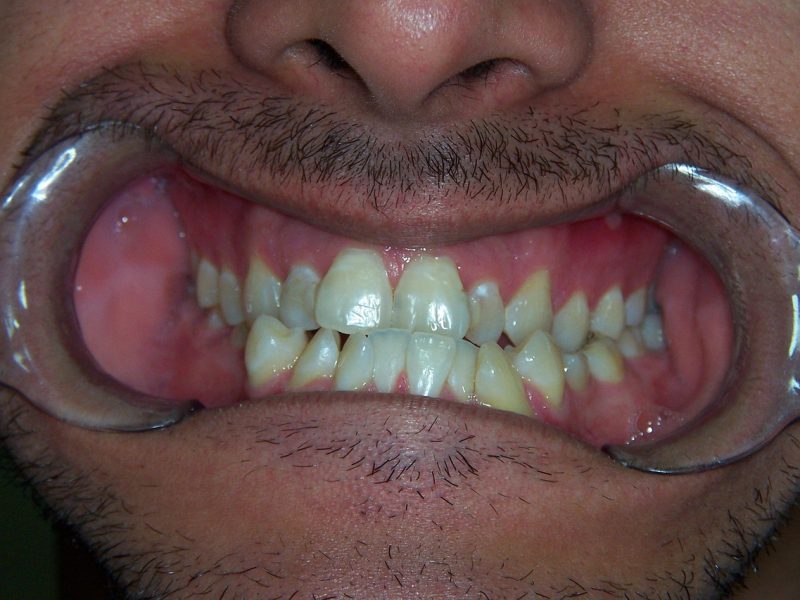jaw clicking causes and management are inter related entities. Jaw clicking, also known as temporomandibular joint (TMJ) clicking, is a phenomenon characterized by an audible clicking or popping sound when opening or closing the mouth. It is often associated with discomfort or pain in the jaw joint area.
The TMJ is the joint that connects your jawbone to your skull, allowing you to move your jaw smoothly. It allows for the movement of the jaw, facilitating actions such as talking, chewing, and yawning. The joint consists of a sliding disc that helps cushion the movement of the jaw. When the TMJ is not functioning properly, it can lead to jaw clicking.
Causes of Jaw Clicking
- TMJ Disorders: Temporomandibular joint disorders (TMD) are one of the most common causes of jaw clicking. TMD can result from factors such as jaw misalignment, excessive stress on the jaw joint, or problems with the muscles that control jaw movement.
- Disc Displacement: The TMJ has a disc that acts as a cushion between the jawbone and the skull. If the disc becomes displaced or moves out of its proper position, it can cause clicking or popping sounds when you open or close your mouth.
- Arthritis: Certain types of arthritis, such as osteoarthritis or rheumatoid arthritis, can affect the TMJ and lead to jaw clicking. Arthritis causes inflammation and damage to the joints, including the TMJ.
- Jaw Injury: Trauma or injury to the jaw, such as a direct blow to the face or a car accident, can damage the TMJ or its surrounding structures. This damage can result in jaw clicking.
- Teeth Grinding and Clenching/ Bruxism: Habitual teeth grinding (bruxism) or clenching can put excessive pressure on the TMJ, leading to jaw clicking. The repetitive motion and strain on the joint can cause dysfunction and clicking sounds.
- Muscle Spasms or Tension: Muscle spasms or tension in the jaw muscles can affect the proper alignment and movement of the TMJ, resulting in jaw clicking.
- Stress and Anxiety: Psychological factors like stress and anxiety can contribute to jaw clenching and muscle tension, which can lead to jaw clicking.
- Eruption of wisdom teeth: In some cases due to lack of space wisdom teeth exert pressure on TMJ leading to jaw clicking and jaw pain.
In many cases, jaw clicking is not a serious issue and may resolve on its own without treatment. However, if jaw clicking is accompanied by pain, limited jaw movement, or other symptoms like headaches or facial discomfort, it is advisable to seek medical attention. A healthcare professional, such as a dentist or an oral and maxillofacial surgeon, can evaluate your symptoms and determine the underlying cause of the jaw clicking. Treatment options may include self-care measures, physical therapy, medications, or, in severe cases, surgery.
Management of jaw clicking
Management of jaw clicking includes following steps:
- Self-care techniques:
- Applying moist heat or cold packs to the affected area to relieve pain and reduce inflammation.
- Eating soft foods and avoiding excessive jaw movements, such as chewing gum or biting into hard foods.
- Practicing relaxation techniques, such as deep breathing or meditation, to reduce muscle tension in the jaw.
- Avoiding activities that may exacerbate jaw clicking, such as excessive talking or yawning.
- Jaw exercises:
- Gentle stretching and strengthening exercises for the jaw muscles may help improve jaw function and reduce clicking. Your dentist or physical therapist can provide specific exercises tailored to your condition.
- Medications:
- Over-the-counter pain relievers, such as ibuprofen or acetaminophen, may help alleviate pain associated with jaw clicking. However, these provide temporary relief and do not address the underlying cause.
- In some cases, your doctor may prescribe muscle relaxants or anti-inflammatory medications to reduce muscle tension and inflammation.
- Dental treatments:
- If malocclusion or misalignment of the teeth is contributing to the jaw clicking, your dentist may recommend orthodontic treatments or dental appliances, such as a splint or mouthguard, to help correct the alignment and reduce symptoms.
- Lifestyle modifications:
- Avoiding habits like teeth grinding or clenching. This can cause strain on the jaw joint.
- Managing stress through relaxation techniques or counselling, as stress can contribute to muscle tension and worsen jaw clicking.
- Physiotherapy:
In more severe cases, your healthcare provider may recommend physiotherapy for the jaw, which can include techniques such as ultrasound, massage, or exercises to improve jaw function.
It’s important to consult with a healthcare professional, such as a dentist or oral and maxillofacial specialist, for a proper diagnosis and personalized treatment plan based on the underlying cause of your jaw clicking. They can assess your condition, provide appropriate recommendations, and refer you to other specialists if needed. Jaw clicking causes and management are inter related as if the cause is well known management becomes easy.


